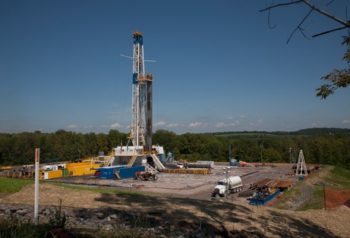 Green activists are at war with the greatest American foe since the Axis Powers—or so they say. The latest Democratic Party platform compares the fight against global warming to World War II.
Green activists are at war with the greatest American foe since the Axis Powers—or so they say. The latest Democratic Party platform compares the fight against global warming to World War II.
Using terms such as “battlefield,” “siege,” and “front,” those opposed this “war effort” have been labeled anything from Nazis to Holocaust deniers. (I personally have been called a sociopath by climate activist Joe Romm of the Center for American Progress, another story.)
The upcoming election has inspired dire concern. Don’t “vote for climate catastrophe” warned a Washington Post editorialist. “At this point,” stated Michael Klare, Professor of Peace and World Security at Hampshire College, “electing green-minded leaders, stopping climate deniers (or ignorers) from capturing high office, and opposing fossil-fueled ultranationalism is the only realistic path to a habitable planet.”
Desperation Backfire?
Equating the Third Reich with the free society’s fossil-fuel reliance, and charging Republicans with climate destruction, is from the theater of the absurd. Americans care greatly about the future; to say otherwise is to deny their very humanity. It is right and fair that critics of climate catastrophism reject calls for bigger government, tax-wise and regulation-wise.
And the great middle can be excused for realizing that obsessing about climate change is avoiding a frank discussion about the here-and-now problems of budget deficits, the federal debt, school choice, entitlement reform, and so on.
Perhaps there is good news in the ugliness of desperate activists who are trying to get their issue out front. Not only do polls suggest the public is unmoved at home and in abroad, serial exaggeration at this point is arguably backfiring, confirming the perils of climate exaggeration.
Until civility returns, our side can ask whether the critics are acting like the Gestapo of global warming. Two can play a game that should not be played at all.
No Point of No Return
Global warming activists tout their commitment to evidence and reason. Yet their dismal track record seems to lead to only more drama and hyperbole, not humility and open-mindedness.
Back in 2006, Al Gore prophesied that unless the world dramatically reduced greenhouse gasses, we would hit a “point of no return.” And in his book review of Gore’s book and movie from that year, An Inconvenient Truth, scientist James Hansen unequivocally stated: “We have at most ten years—not ten years to decide upon action, but ten years to alter fundamentally the trajectory of global greenhouse emissions.”
Time is up on Gore’s “point of no return” and Hansen’s “critical tipping point.” But the two fathers of the global-warming movement (Hansen and Gore got it going back in the summer of 1988) have nary admitted their exaggeration nor set a new timetable for effective action.
Many others have followed the same scare-and-hide pattern. Rajendra Pachauri, while head of a United Nations climate panel, pleaded that without drastic action before 2012, it would be too late to save the planet.
Back in the late 1980s, the UN claimed that if global warming were not checked by 2000, rising sea levels would wash entire counties away. Four years ago, Peter Wadhams, professor of ocean physics at the University of Cambridge, predicted “global disaster” from the demise of Arctic sea ice—in four years. He too, is eating crow.
There is some levity in all this charade. In 2009, then-British Prime Minister Gordon Brown predicted that the world had only 50 days to save the planet from global warming. But fifty days and years later, and the earth still spins.
















